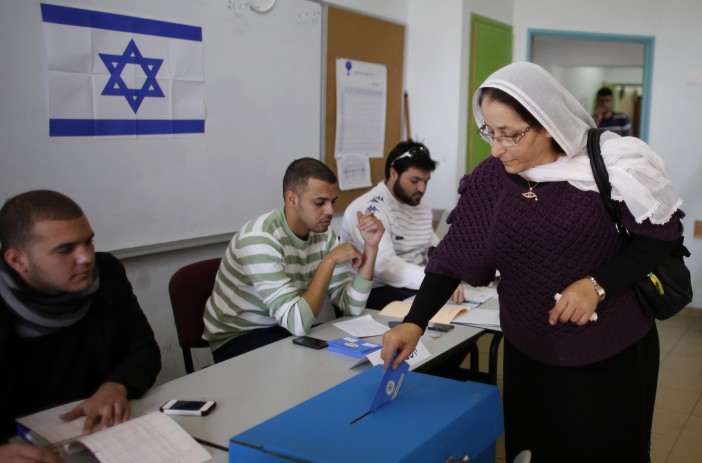Some 5,800,000 Israelis are eligible to vote in Tuesday’s election, out of a population of about 8.3 million people. Jews comprise 75 per cent of all Israelis while Arabs make up about 20 per cent. The Arab sector is divided among several religions, including Muslims, Christians and Druze, with some defining themselves as Palestinian.
Just over 4 per cent of the population are registered as others, many of them non-Jewish immigrants. Government data shows 75 per cent of Israeli Jews were born in the country, compared to just 35 per cent in 1948, when the country was founded as a Jewish State. Voting for the 120 seats in the Knesset will take place at 10,119 polling stations, including 57 in prisons, and 196 in hospitals.
Israel’s election system is one of proportional representation. The whole country is considered one electoral district, with mandates allocated according to the percentages of votes, rather than the “first past the post” method.
At least 10 parties are expected to be represented in the next Knesset.
The parties include hardline Jewish nationalist factions, pro-business parties, Jewish religious organizations and leftist groupings, in addition to an Arab list.
The threshold for entering the Knesset was recently raised from 2 per cent of the vote to 3.5 per cent. Supporters of the move said it would bring more stability to Israeli governments but critics said the move targeted the ultra-Orthodox Jewish minority and Arabs.
The Arab parties, fearing they could slip below the threshold, have joined into one list for the election for the first time, uniting nationalists, Islamic factions and Communists.
Once the results are known, Israeli President Reuven Rivlin, whose duties are largely ceremonial, meets with the heads of all parties elected to parliament to consult about their choice for prime minister.
Based on these discussions, he then entrusts the formation of a government to the party leader with the best chance of putting together a coalition. All Israeli governments have been coalitions.
The nod has usually gone to the leader of the largest party, but the president can also choose the head of the party most likely to be able to form a functional coalition.
Elections are set to take place every four years, but with the country’s turbulent politics and coalition governments voters get called to polling stations more often. The last election was in 2013.
Voter turnout has historically been relatively high in Israel, and in the last vote some 67 per cent of eligible citizens cast ballots. Israel has a relatively strong economy and is expected to grow at about 3.2 per cent this year, which should help keep unemployment down.
However, Israelis complain about the rising cost of living, saying basic products are more expensive than in many European nations and salaries are lower. Housing costs are rising sharply. SAPA






 WhatsApp us
WhatsApp us 

